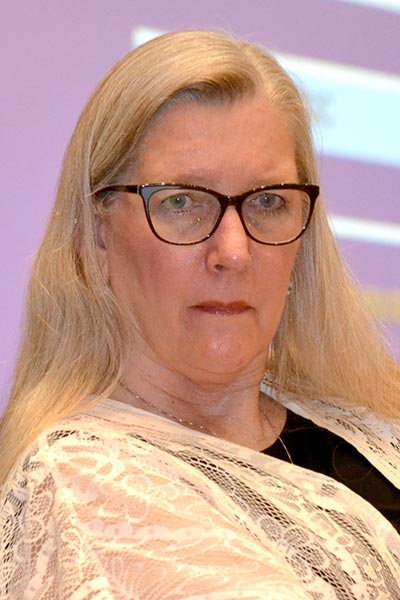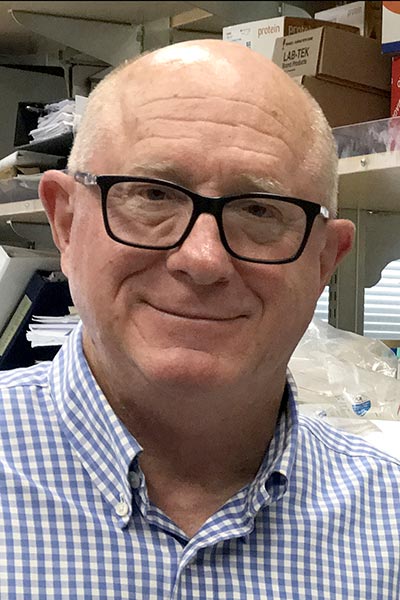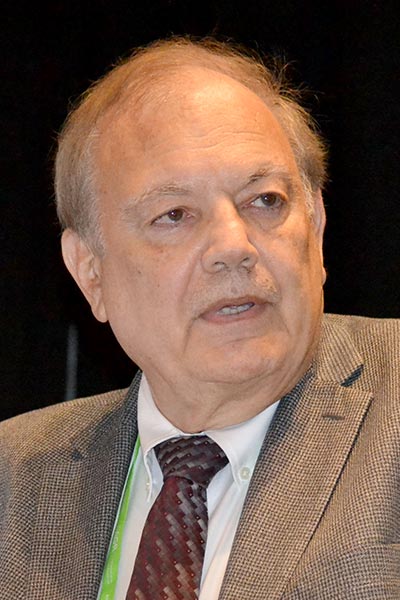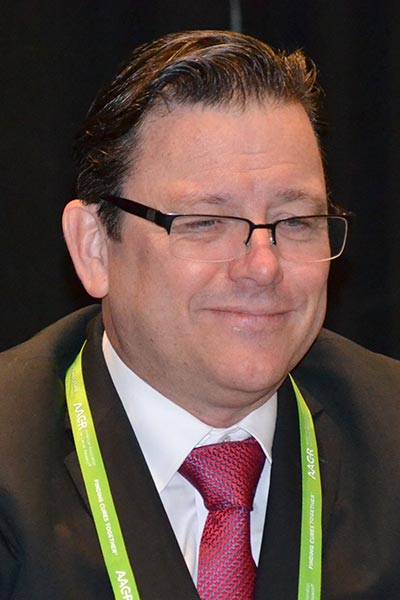Symposium examines the history, impact, and continuing legacy of trastuzumab
This year marks the 25th anniversary of the approval of trastuzumab, the first HER2-targeted therapy for the treatment of HER2-positive breast cancer. The preclinical and clinical development of trastuzumab helped shape the current paradigm in personalized medicine, drug discovery, clinical testing, and product approval.
During an Annual Meeting symposium on Monday, April 17, four scientists who were involved in the discoveries that led to the development of trastuzumab discussed how those discoveries continue to inform cancer research and care.


The session, 25th Anniversary of Trastuzumab: Impact and Future Directions, can be viewed on the virtual meeting platform by registered Annual Meeting participants through July 19, 2023.
H. Michael Shepard, PhD, President and Chief Scientific Officer of Enosi Therapeutics Inc., described the significance of trastuzumab’s approval in 1998.
“The impact of trastuzumab has been huge. It changed drug discovery in pharma and biotech,” he said. “To date, more than 3 million women have been treated, many with significant lasting benefit.”
Gail D. Lewis, MSc, Senior Principal Scientist, Discovery Oncology, at Genentech Inc., said the development of trastuzumab laid the groundwork for the development of antibody-based therapies against HER2-positive cancers.
“HER2 and trastuzumab helped pave the way for developing targeted therapies,” she said. “It was the first receptor tyrosine kinase that was identified as an oncogene, and it was the first oncogene-based therapy, and the first approved humanized antibody therapeutic. It really revolutionized breast cancer care.”
Trastuzumab came with a companion diagnostic, one of the first for breast cancer, to assess HER2 expression levels, she noted.
“The development of a companion diagnostic for HER2-positive cancer was really key,” Lewis said. “If it had not had a companion diagnostic to assess HER2 expression levels, this would have never been a drug.”

Dennis J. Slamon, MD, PhD, Professor of Medicine, Chief of the Division of Hematology/Oncology, and Executive Vice Chair for Research at the UCLA David Geffen School of Medicine, discussed how clinical lessons learned from trastuzumab therapy have informed new approaches in the treatment of HER2-positive cancer, including the emergence of new antibody drug conjugates (ADCs).
In 2012, the EMILIA study demonstrated that the ADC trastuzumab emtansine (T-DM1) improved overall survival in patients with previously treated HER2-positive metastatic breast cancer compared to combination chemotherapy consisting of capecitabine plus lapatanib. Next came trastuzumab deruxtecan (T-DXd), a novel ADC designed to deliver an optimal antitumor effect.
“In a HER2-positive population that progressed on trastuzumab, the vast majority of patients responded. This got everyone’s attention with objective partial responses and significant improvement in progression-free survival and overall survival,” Slamon said.

Because of the optimized characteristics of T-DXd, it has shown clinical efficacy in tumors with low HER2 expression, whereas previous therapies have only worked in tumors with HER2 overexpression. It has also benefited patients with other HER2-overexpressing cancers, such as gastric cancer.
Gregory I. Frost, PhD, Chairman and CEO of EXUMA Biotech, reviewed the evolution of a novel tumor microenvironment-dependent approach to CAR-T technology for HER2-positive solid tumors. Among recent advances, he described the development of a unique type of T- and NK-like cells, or CAR-TaNKs, which have enhanced in vivo proliferation and persistence, resulting in potent antitumor activity.
“If HER2 remains amplified and accessible, cellular therapy approaches might one day provide us another arrow in the quiver for HER2-amplified malignancies,” Frost said. “Furthermore, establishing the safety and efficacy of a CAR in a solid tumor setting provides a foundation to investigate other solutions that may address the complexity of cellular therapies, and potentially expand the universe to HER2 heterogenous malignancies in the future.”
More from the AACR Annual Meeting 2025
View a photo gallery of scenes from Chicago, continue the conversation on social media using the hashtag #AACR25, and read more coverage in AACR Annual Meeting News.

